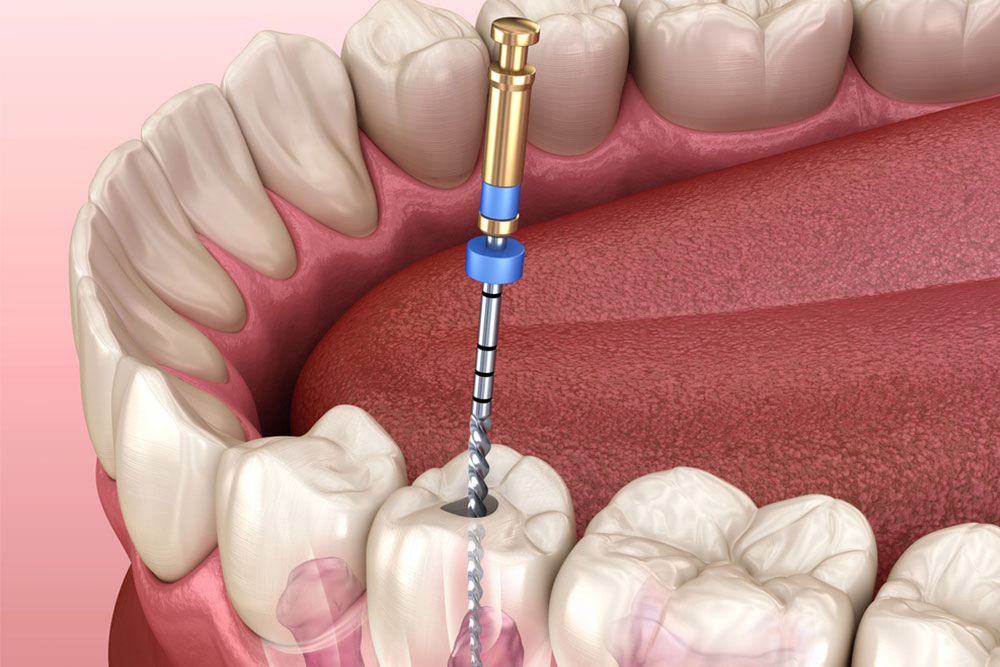
When faced with a severely damaged or infected tooth, you may be wondering: Root canal vs. extraction, which option is best? Both procedures can help alleviate pain and restore your oral health, but the right choice depends on several factors.
In this article, we’ll compare root canal vs. extraction, highlighting the benefits, risks, and circumstances in which each procedure is appropriate.
What Is a Root Canal?
A root canal is a dental treatment aimed at saving a tooth that has become infected or a severely decayed tooth. During this procedure, the dentist removes the damaged pulp inside the tooth, which contains nerves and blood vessels.
Once the pulp is removed, the inner parts of the tooth are thoroughly cleaned and disinfected, and the space is filled with a special material. Afterward, a crown is typically placed on the tooth to restore its function and prevent further damage.
The goal of a root canal is to preserve the natural tooth. In many cases, this procedure can save the tooth and prevent the need for an extraction. Root canals are highly effective at alleviating symptoms caused by infection and can often last a lifetime with proper care.
What Is a Tooth Extraction?
A tooth extraction involves removing a tooth from its socket in the bone. Extractions may be necessary for a variety of reasons, including severe decay, infection, gum disease, or overcrowding. While a root canal aims to preserve the tooth, an extraction removes the tooth entirely.
In some cases, an extraction may be the best option, especially if the tooth is too damaged to be saved. After an extraction, the gap left by the missing tooth can be filled with a dental implant, bridge, or partial denture to restore function and aesthetics.
Advantages of Root Canal Treatment
Choosing a root canal treatment in Mandeville, LA, offers several benefits. The most obvious advantage is that it saves the natural tooth. Keeping your natural tooth is important for maintaining proper function, as it helps with chewing and prevents surrounding teeth from shifting.
Additionally, preserving the tooth can help maintain the structure of the jawbone. When a tooth is extracted, the bone in that area can begin to deteriorate over time. A root canal helps avoid this issue by allowing you to keep your tooth intact.
Advantages of Tooth Extraction
While losing a tooth may seem undesirable, tooth extraction treatment in Mandeville, LA can offer significant advantages in certain cases. If the tooth is severely damaged, extraction may be the most straightforward option. It can eliminate the source of pain and infection, leading to immediate relief.
Additionally, an extraction can be the first step in replacing a damaged tooth with a dental implant or bridge. This provides the opportunity for a fresh, restored smile that looks and functions just like your natural teeth.
In some cases, especially when dealing with crowded teeth or wisdom teeth, an extraction may also be necessary to make room for other dental treatments.
Root Canal Vs. Extraction: Which Is Best for You?
The decision between extraction vs. root canal depends on the condition of your tooth and the underlying cause of the problem.
If the tooth is still structurally sound and the infection or damage is limited to the pulp, a root canal is often the best choice. It is particularly beneficial when the tooth is still functional and can be preserved for long-term use. A root canal can help maintain your natural tooth, which is preferable for both functionality and aesthetics.
On the other hand, an extraction is typically recommended when the tooth is severely damaged and cannot be saved through a root canal. This may occur when there is extensive decay, fracture, or infection that has spread beyond the pulp. In cases where the tooth is causing significant pain and cannot be treated with a root canal, extraction may be the only option.
Contact our team at Grand Family Dentistry today for more information or to schedule your consultation for root canal treatments or tooth extractions. We’re here to help.

